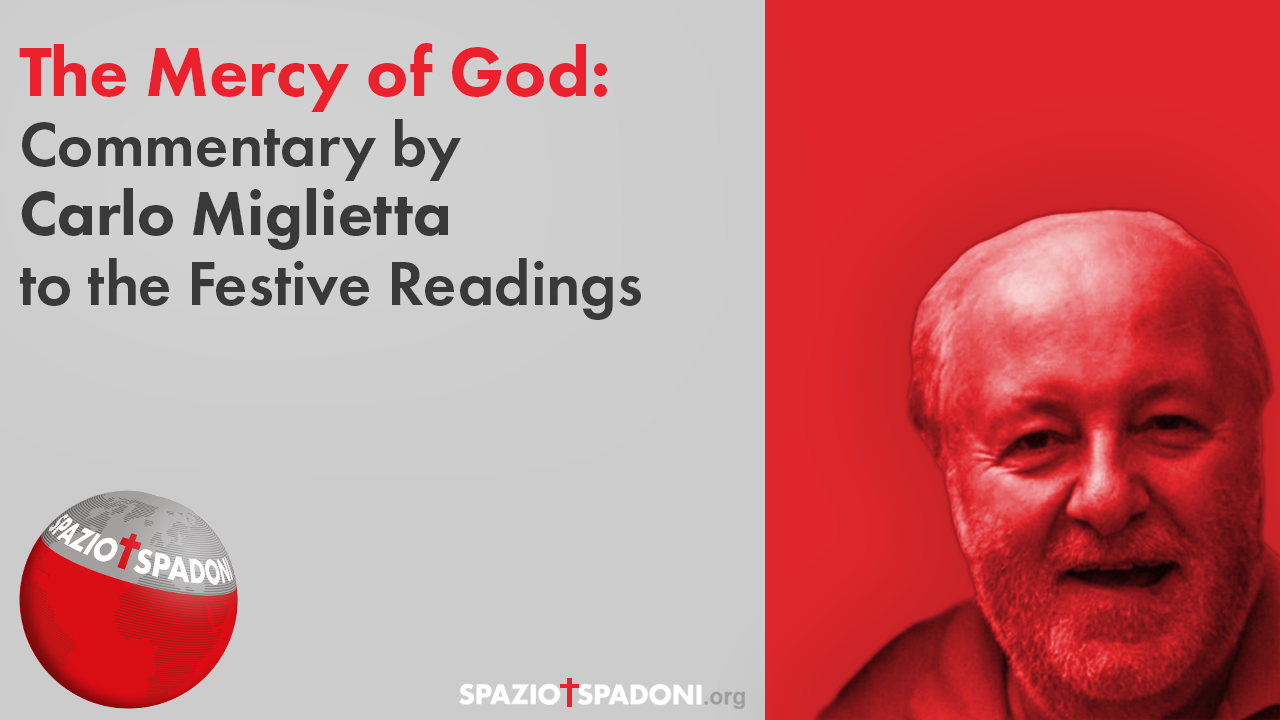
Sunday XXI Year B – Do you also want to leave?
Readings: Jas 24:1-2,15-17,18; Eph 5:21-32; Jn 6:60-69
By one of those sublime combinations that the Liturgy sometimes offers us, the “Continuous Lectio” of the Letter to the Ephesians and John chapter 6 juxtapose for us today two of the three themes that in the Gospels triggered a rejection by the disciples.
The first is the prospect of Christian Marriage, of loving one another “as Christ loved the church and gave himself for her” (Eph. 5:25), in eternal fidelity (Mt. 19:1-9): this determines the reaction of the disciples, who exclaim, “If this is the condition of the man in relation to the woman, it is not fitting for them to marry” (Mt. 19:10).
The second rejection relates to the Eucharist: faced with a God who becomes bread, who gives himself as food to men, “many of his disciples drew back and no longer went with him” (Jn 6:66).
The third rejection is that of the Cross: when Jesus “began to say openly that he must…suffer much…, and be killed…, Peter drew him aside and began to protest, saying, ‘God forbid, Lord; this will never happen to you’” (Mt 16:21-22). The rejection of the Cross summarizes the other two: it is “scandal… , foolishness” (1 Cor. 1:23) a poor, weak God, who dies as an evildoer, taking upon himself all the sorrows of the world, out of love, only out of love; the Eucharist, in which God identifies himself in a piece of bread, is a great sign of this love that comes to the point of emptying itself completely in total self-giving; Christian Marriage is a living prophecy of divine love (Eph 5:25), which is always only oblative, which never “divorces” itself from us despite all our unfaithfulness, which is making itself a servant (Eph 5:25-29), which is a call to unbreakable unity (Eph 5:31).
Jesus asks us to enter into the logic of love, which is the logic of the Cross, of the Eucharist, of Christian Marriage. But “this ‘Lògos’ is hard: who can understand it?” (Jn 6:60), where “lògos” is both the Word of Jesus and Jesus himself, the Lògos, the Word made flesh (Jn 1). Jesus is hard, hard to follow: “If anyone wants to come after me, let him deny himself and take up his cross and follow me. For whoever wants to save his life will lose it, but whoever loses his life for my sake will find it” (Mt 16:24-26: cf. Jn 12:24-26). This speech is foolishness to the world, it cannot be understood according to the flesh, but only in the Holy Spirit: “It is the Spirit who gives life, the flesh is of no avail; the words I have spoken to you are Spirit and life” (Jn 6:63).
To choose Jesus is to take a stand between the flesh and the Spirit, between worldly and divine logic, between darkness and light (Jn 3:19-21). Compromises, half-measures, partial commitments are not allowed: “Because you are lukewarm, that is, you are neither hot nor cold,” says the Lord to the Church of Laodicea, “I am about to vomit you out of my mouth” (Rev. 3:16); “The Word of God is sharper than any two-edged sword; it penetrates to the dividing point of soul and spirit, of joints and marrow, and scrutinizes the feelings and thoughts of the heart… Everything is naked and uncovered in his eyes, and to him we must give an account” (Heb. 4:12-13; cf. Jn. 6:61, 64). We, too, must take a stand, for the Lord and his teaching, or against him, just as Joshua demanded of Israel, the First Reading tells us (Jas 24:1-2,15-17,18), once they entered the Promised Land.
And this choice must be renewed every day: it is not enough to have entered the Church once and for all: “Have I not chosen you, the Twelve? Yet one of you is a devil!” (Jn. 6:70). In the Christian community there is Peter the Pope who will deny him, there is Judas who will sell him for thirty denarii, there is Thomas the unbeliever, there are James and John who demand positions of power in the Kingdom: permanence in faithfulness is not guaranteed…
